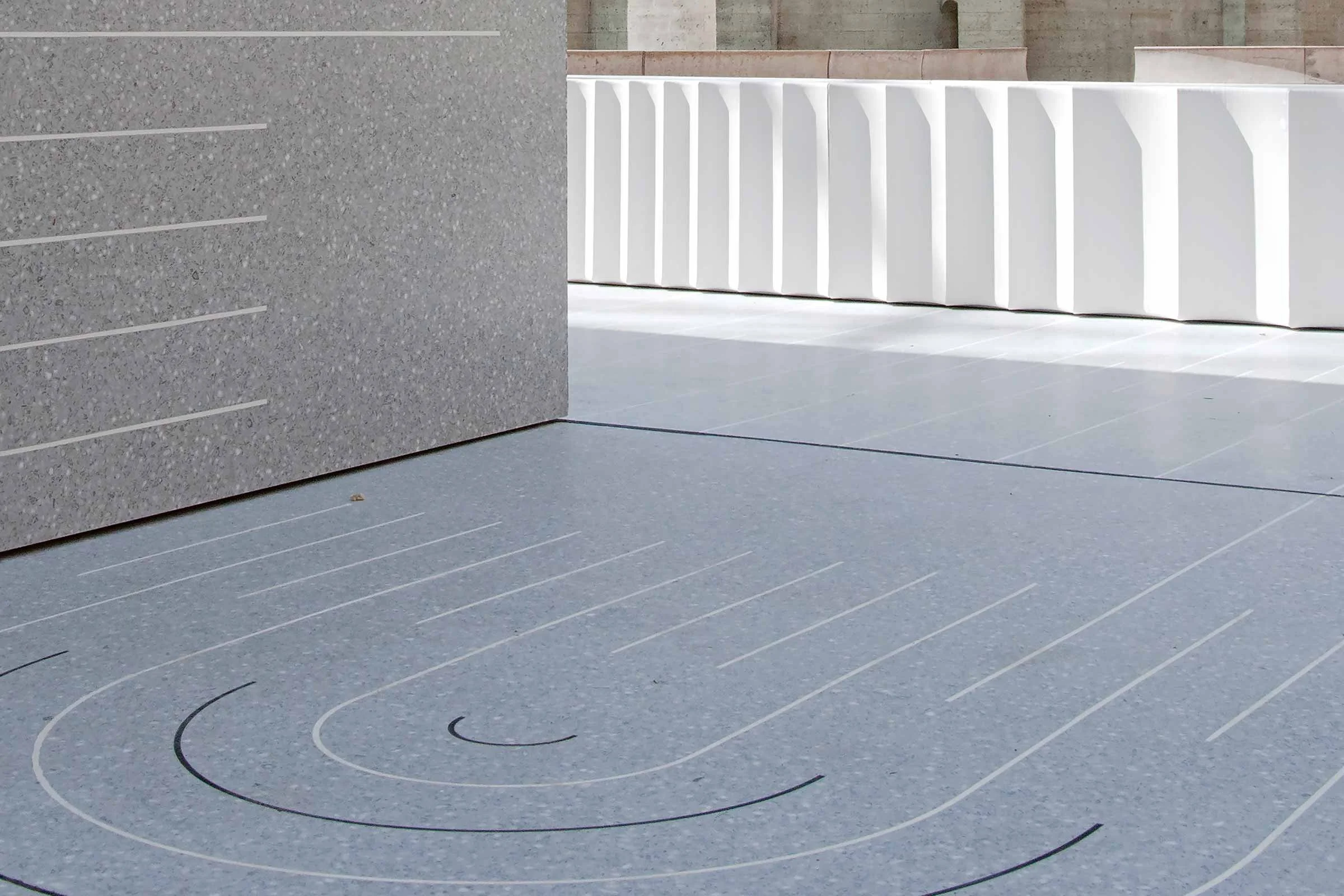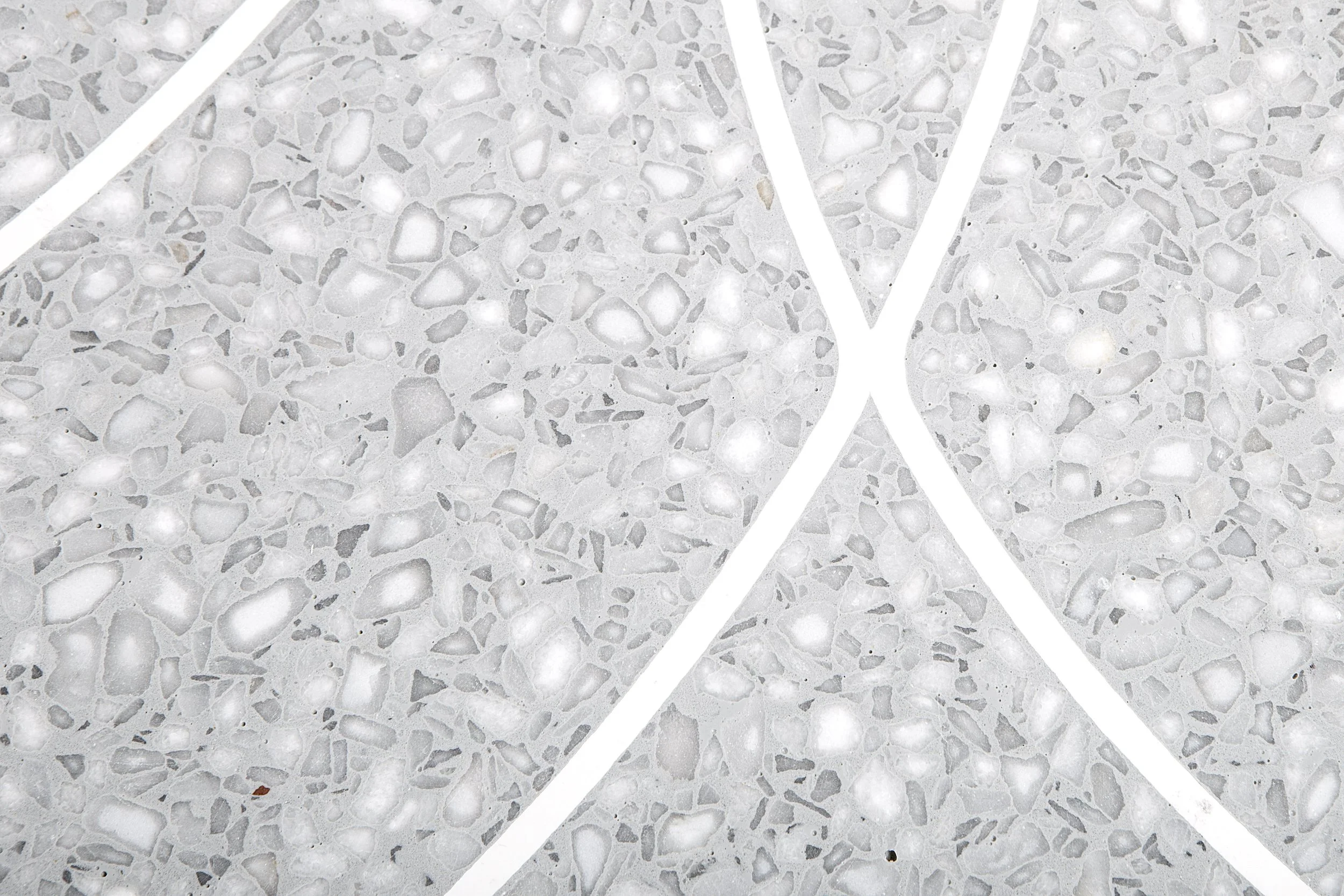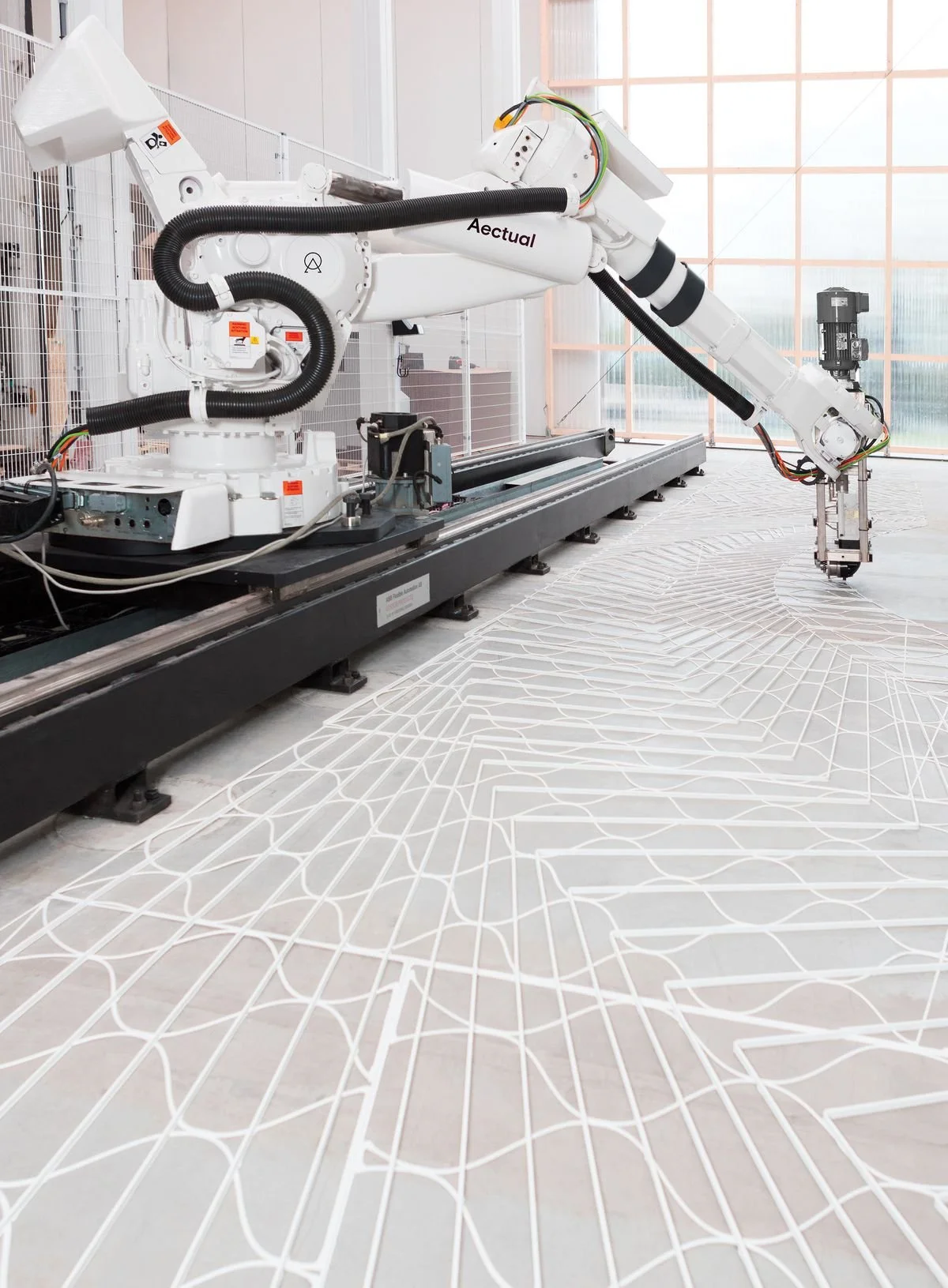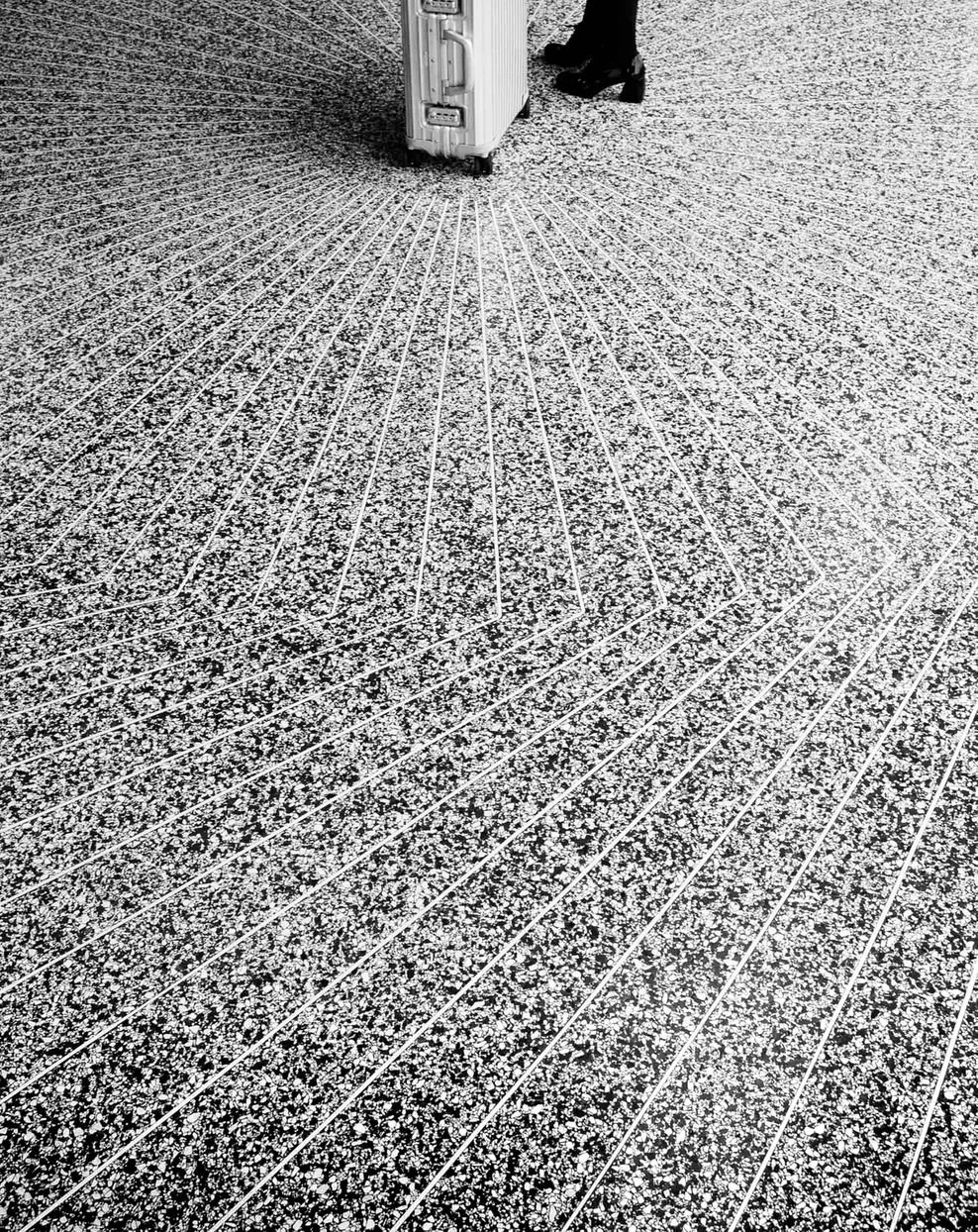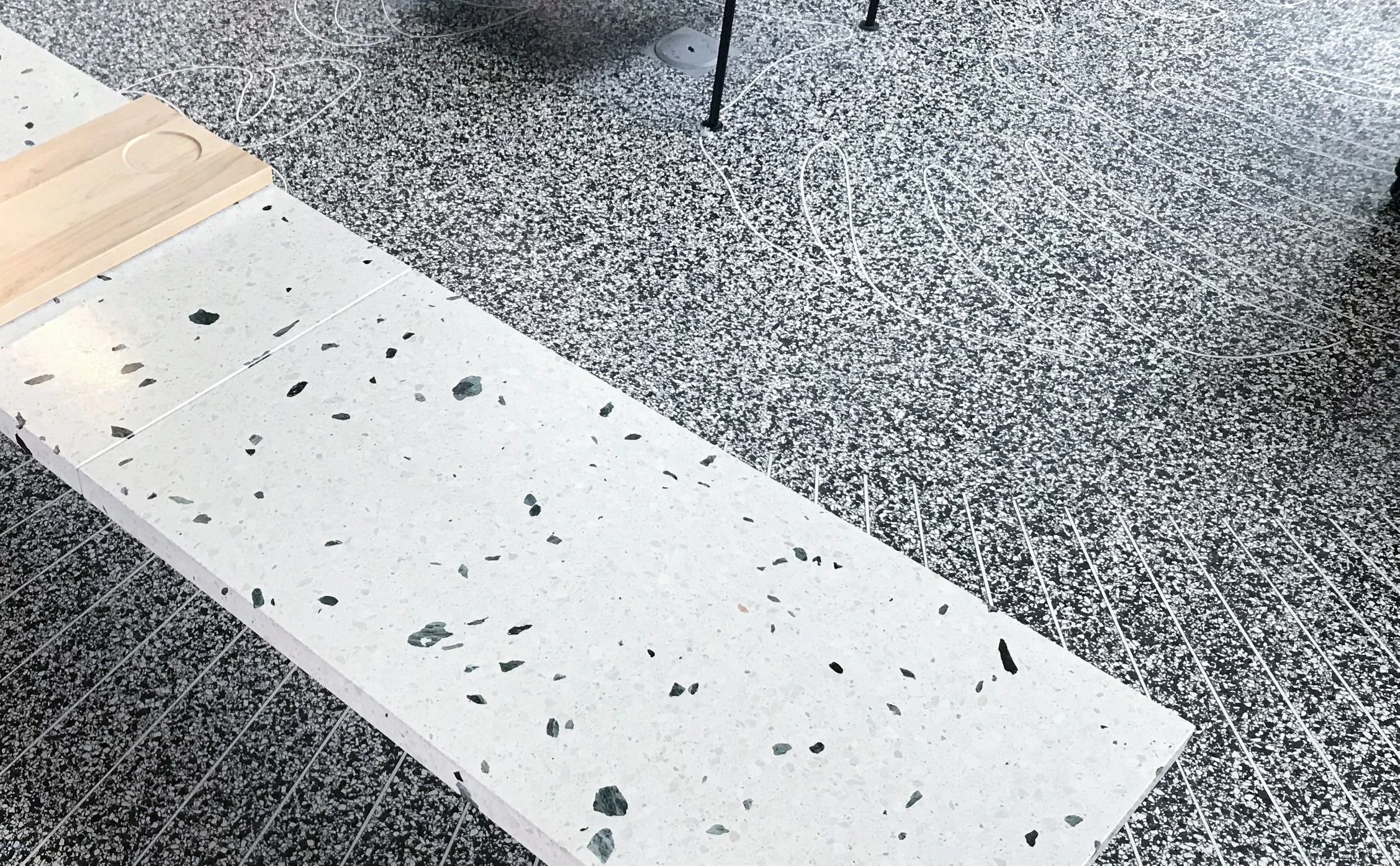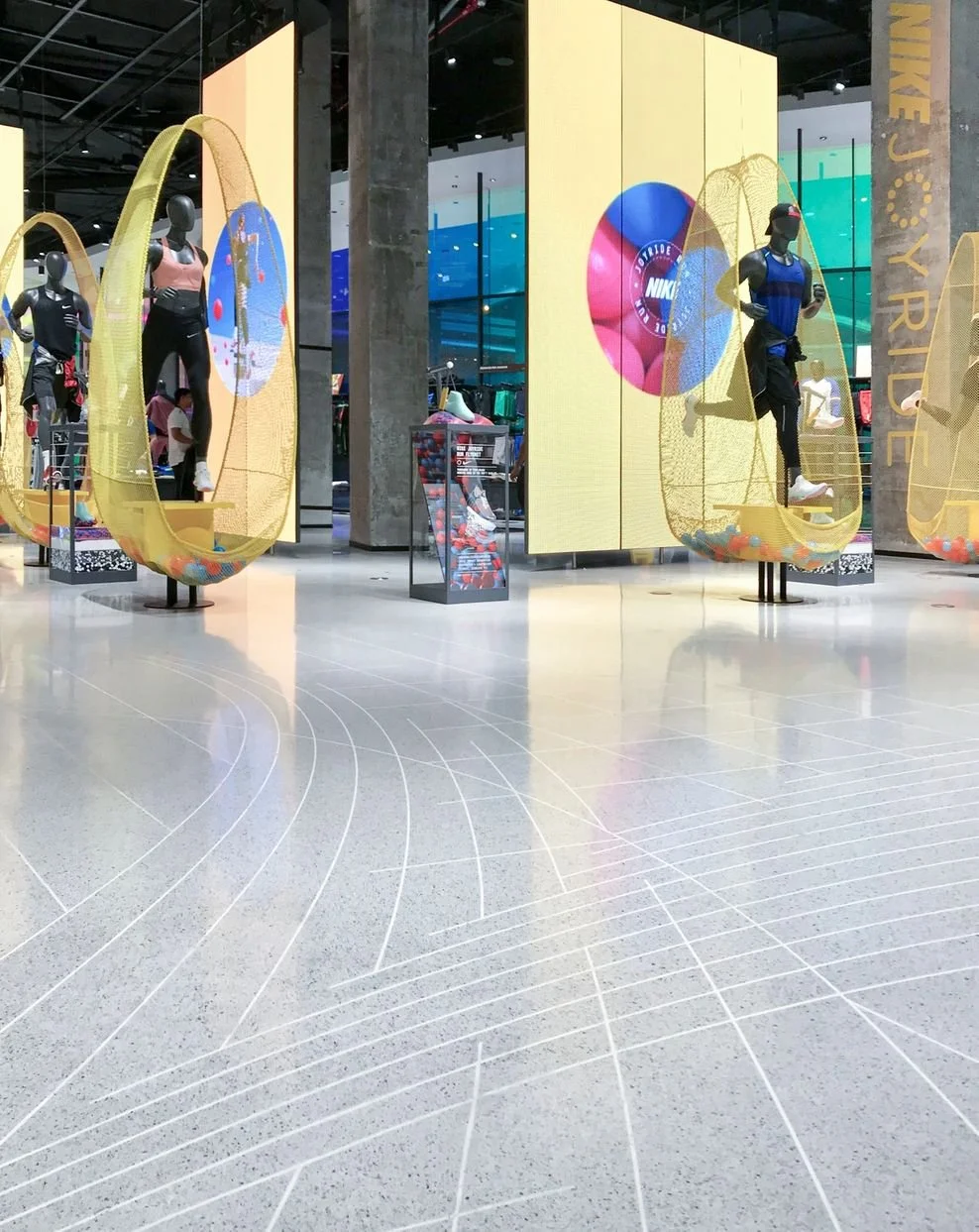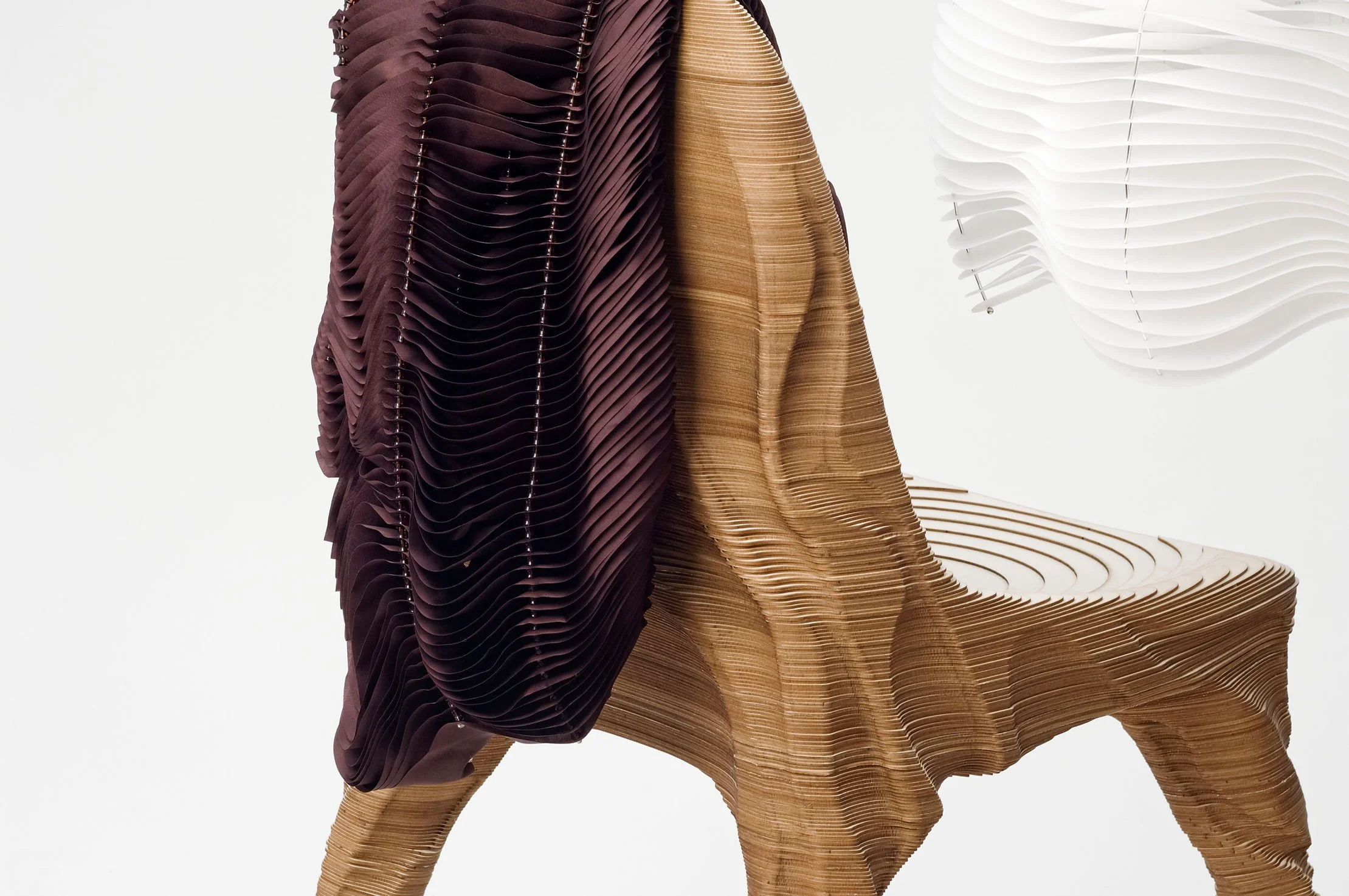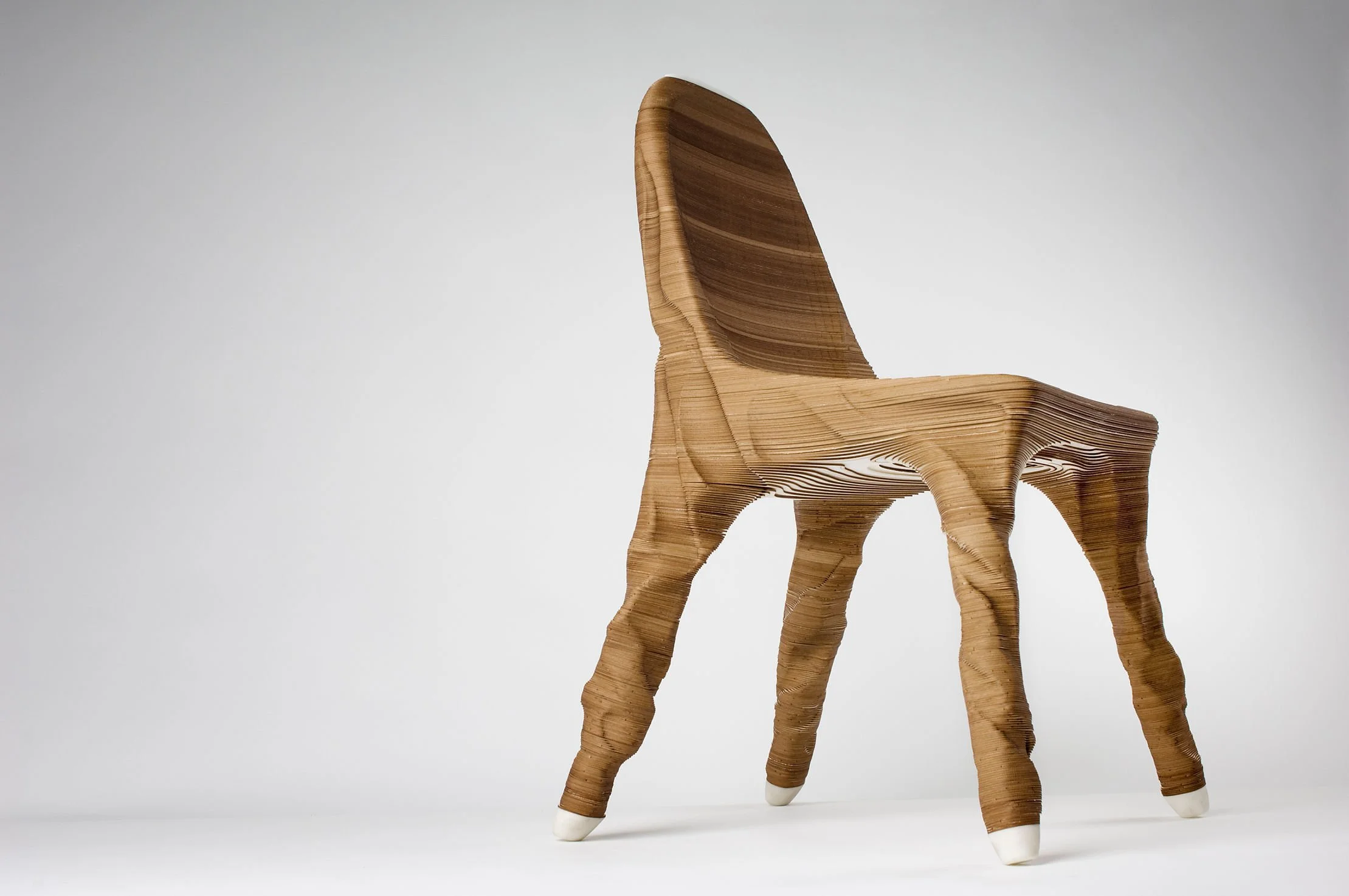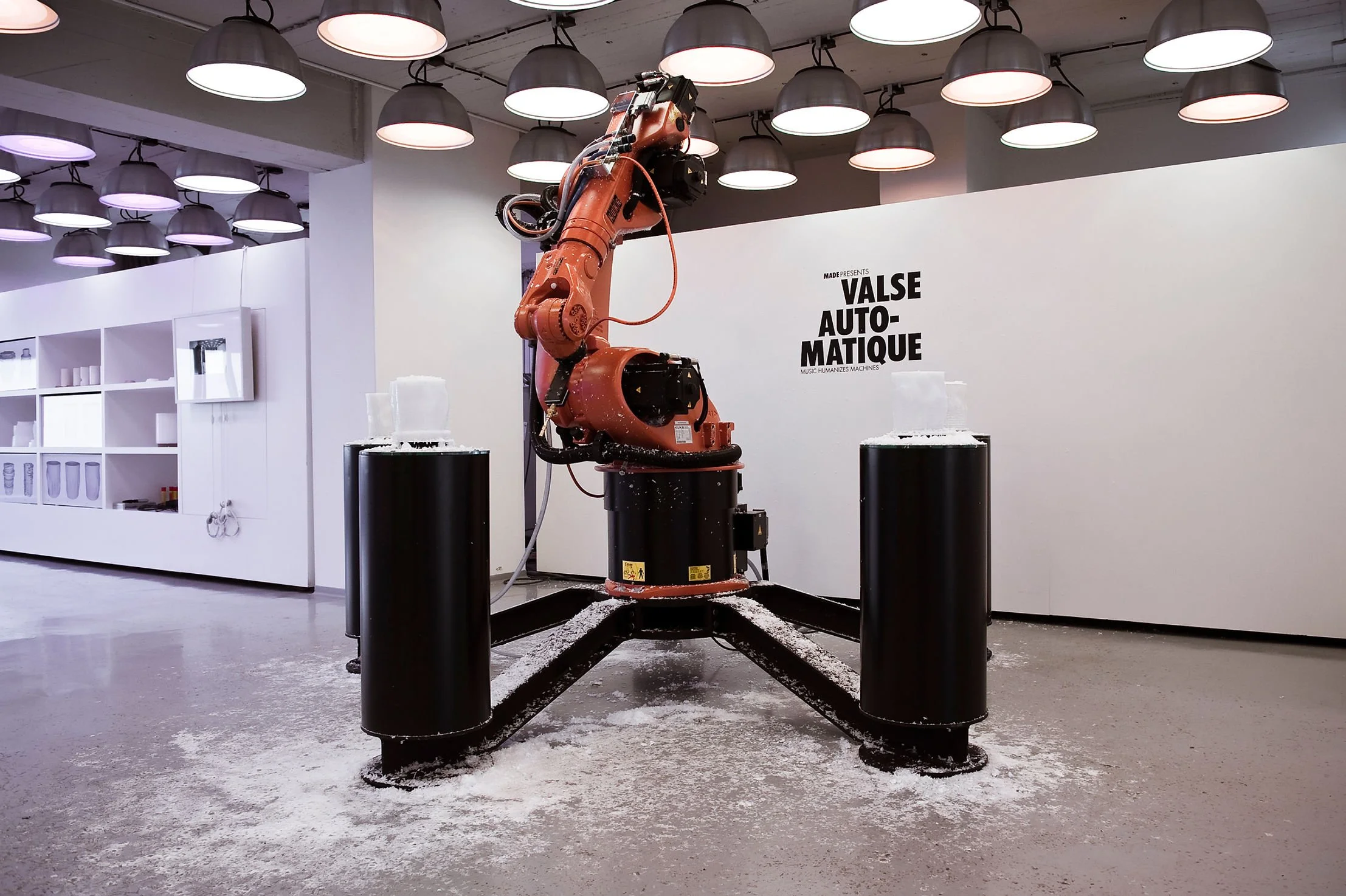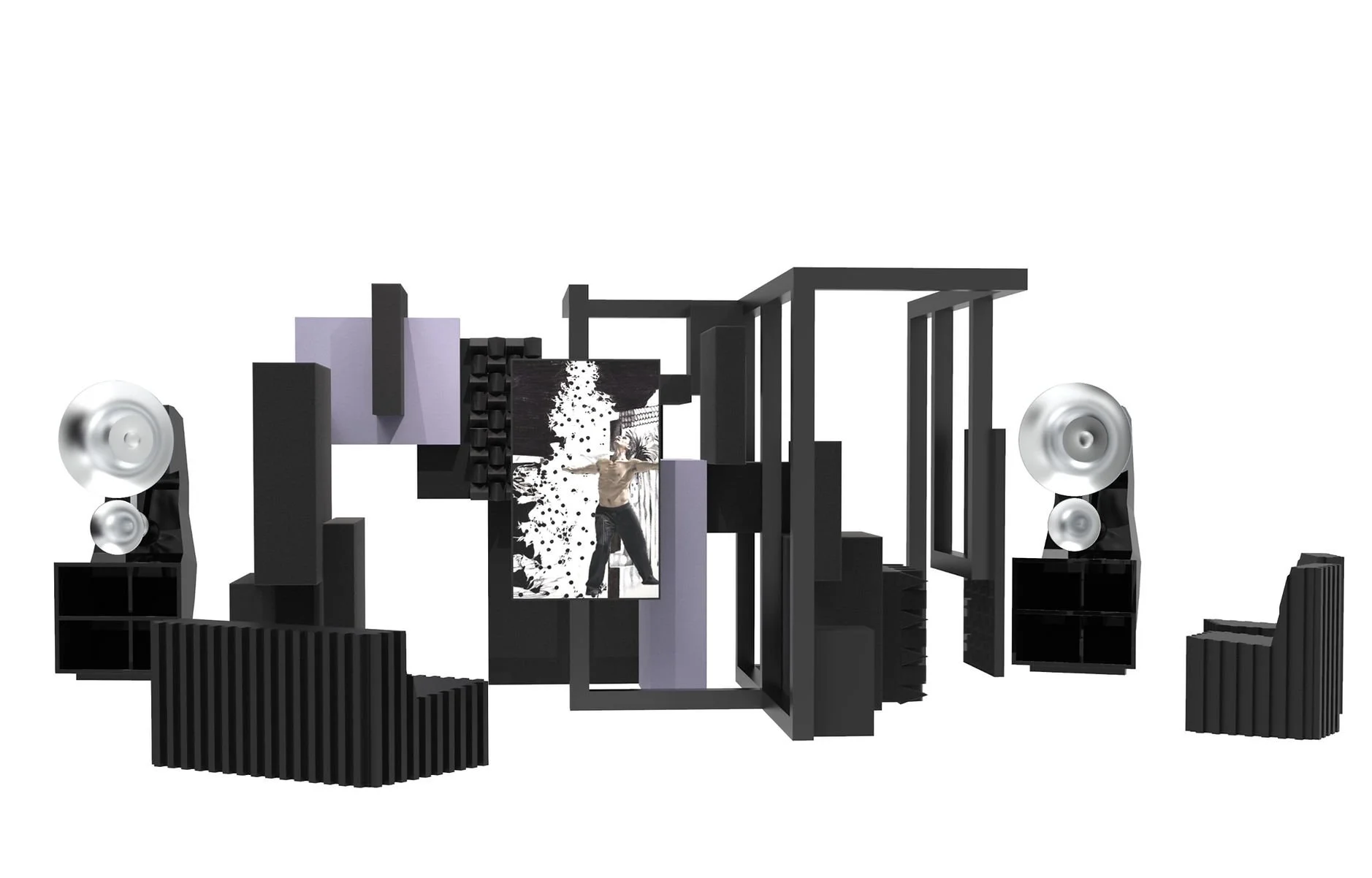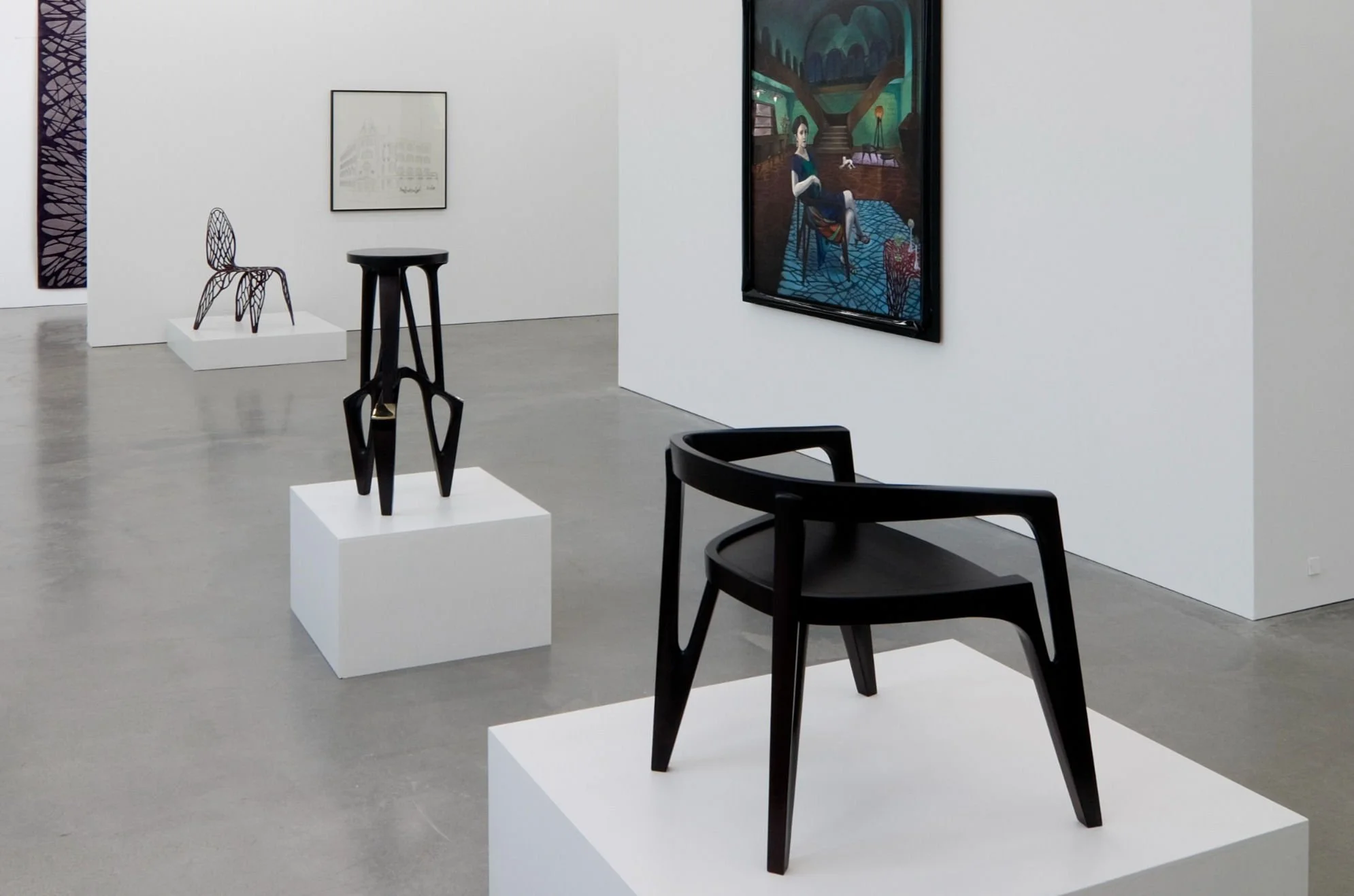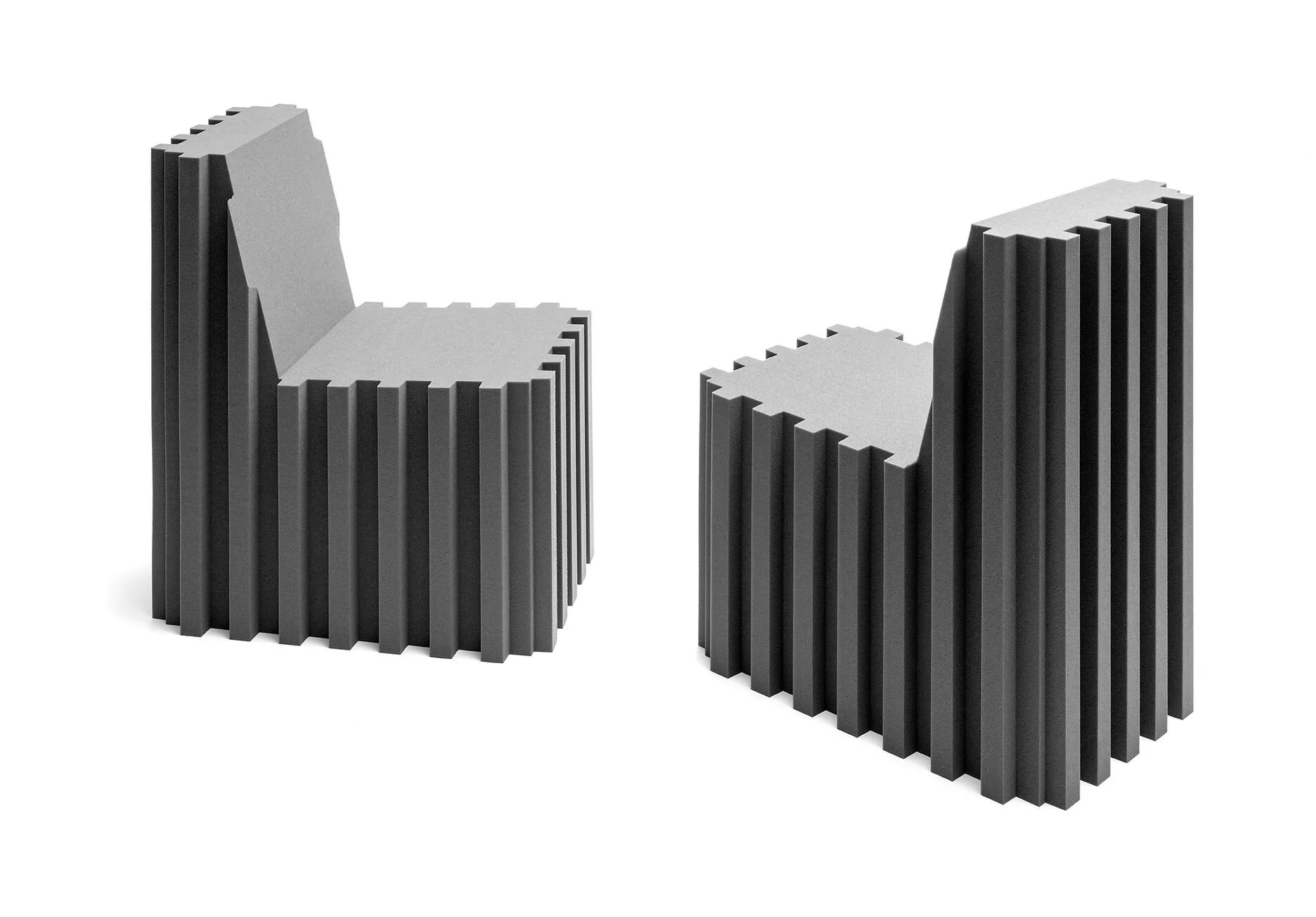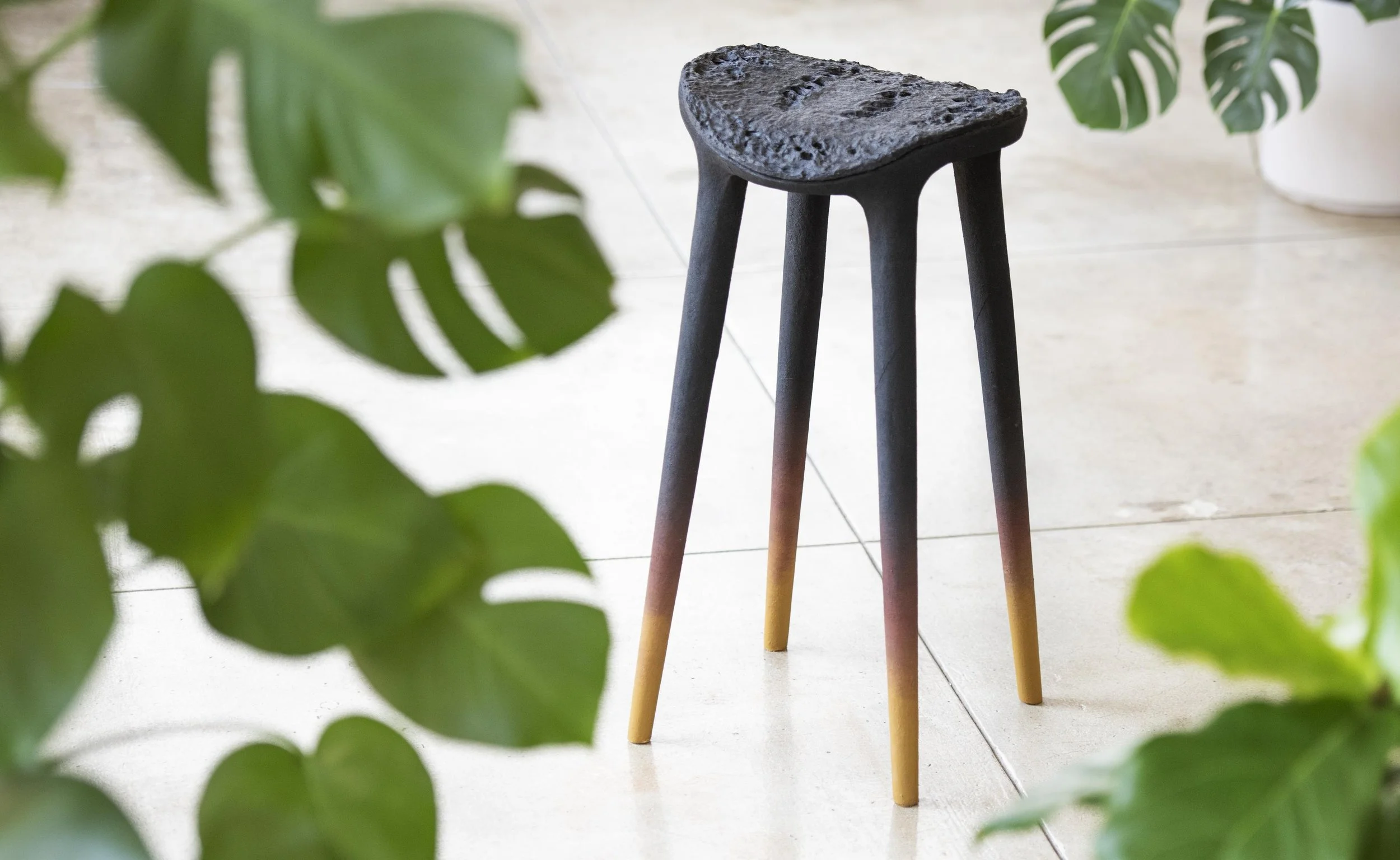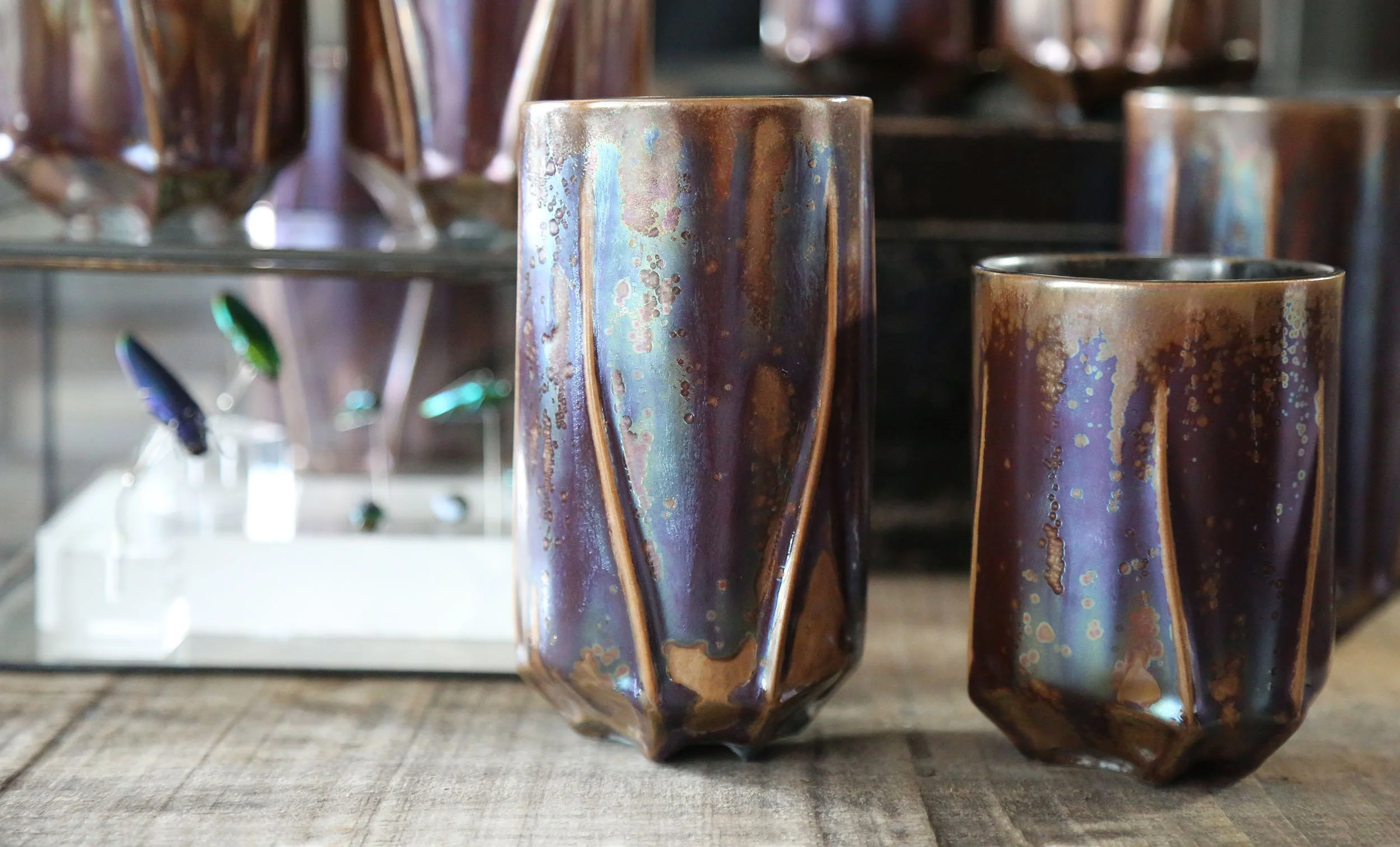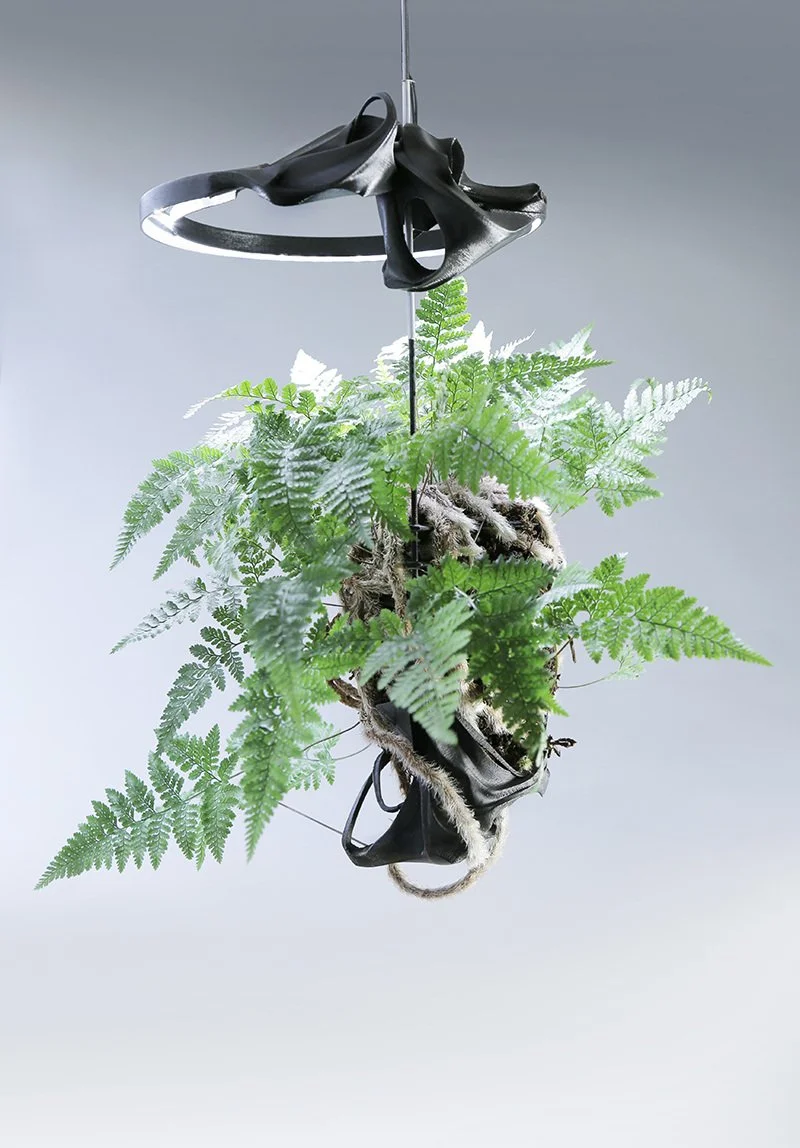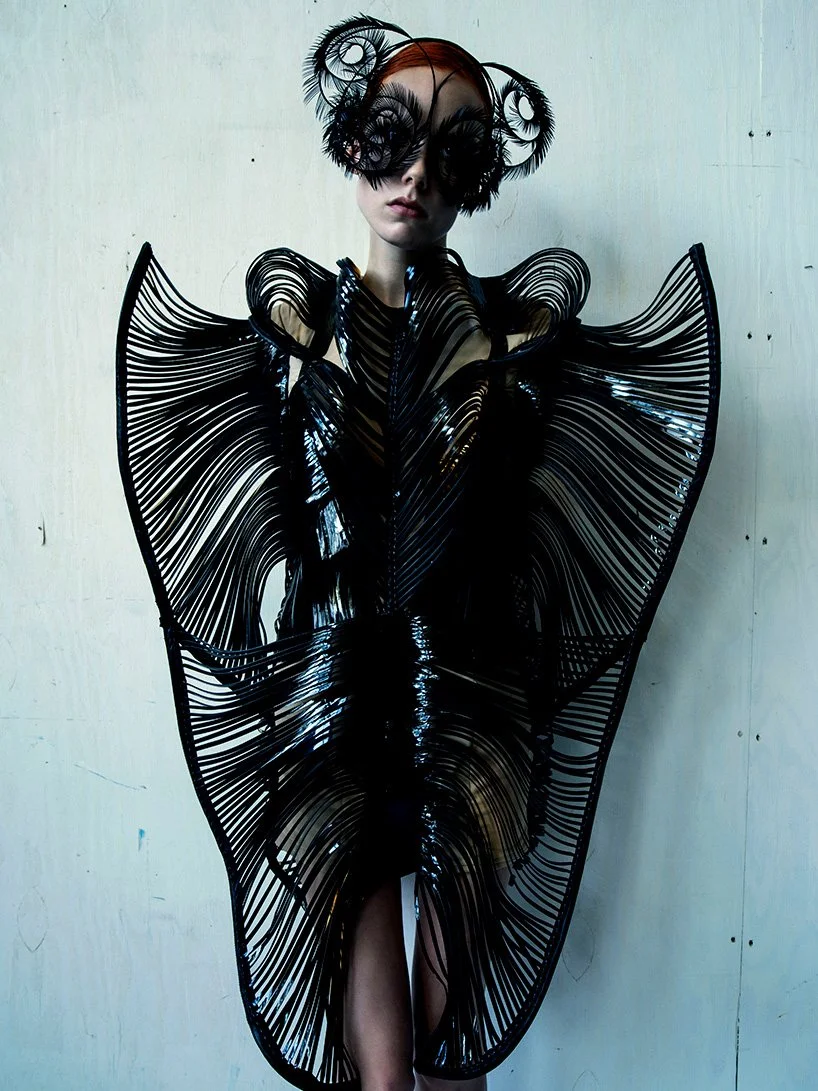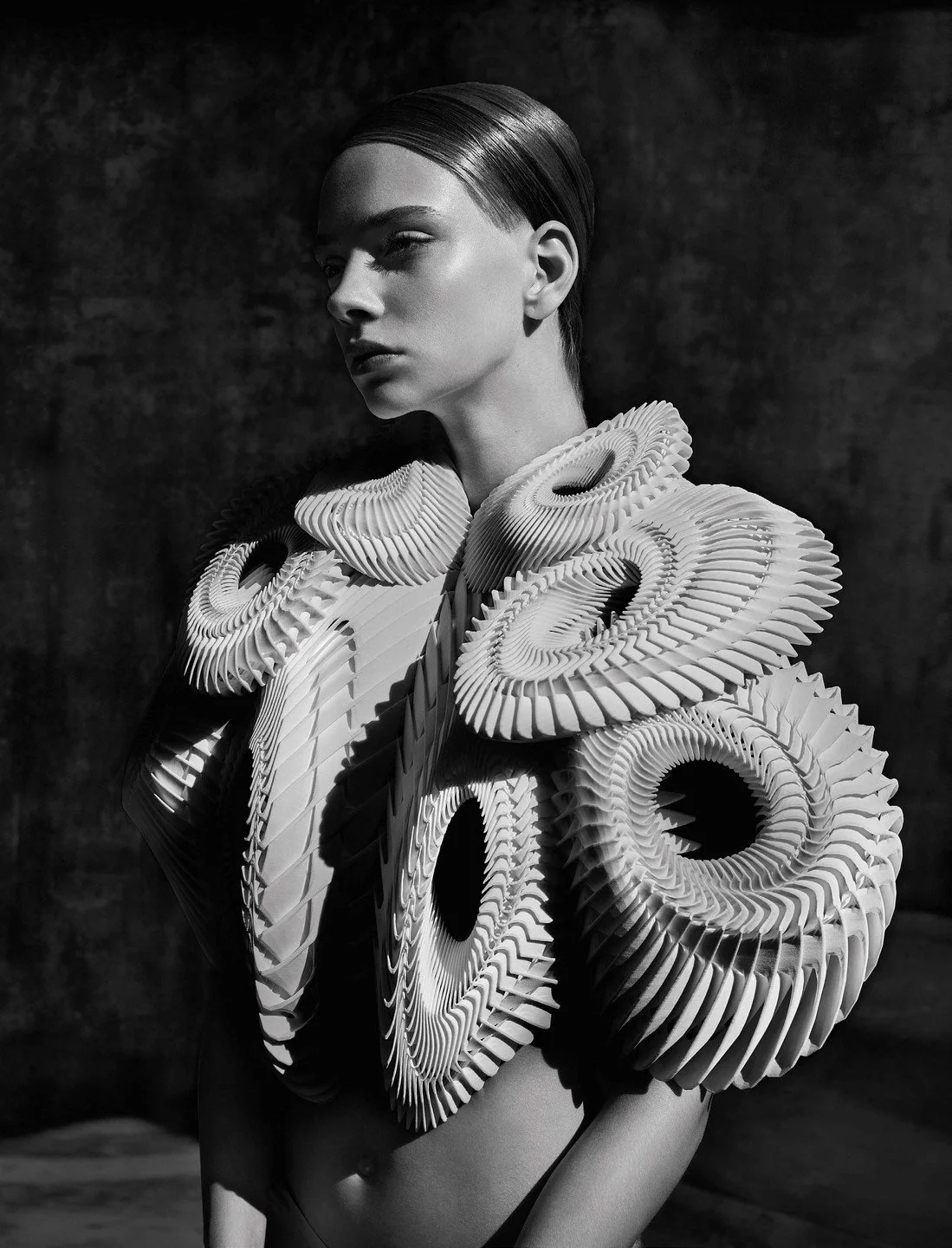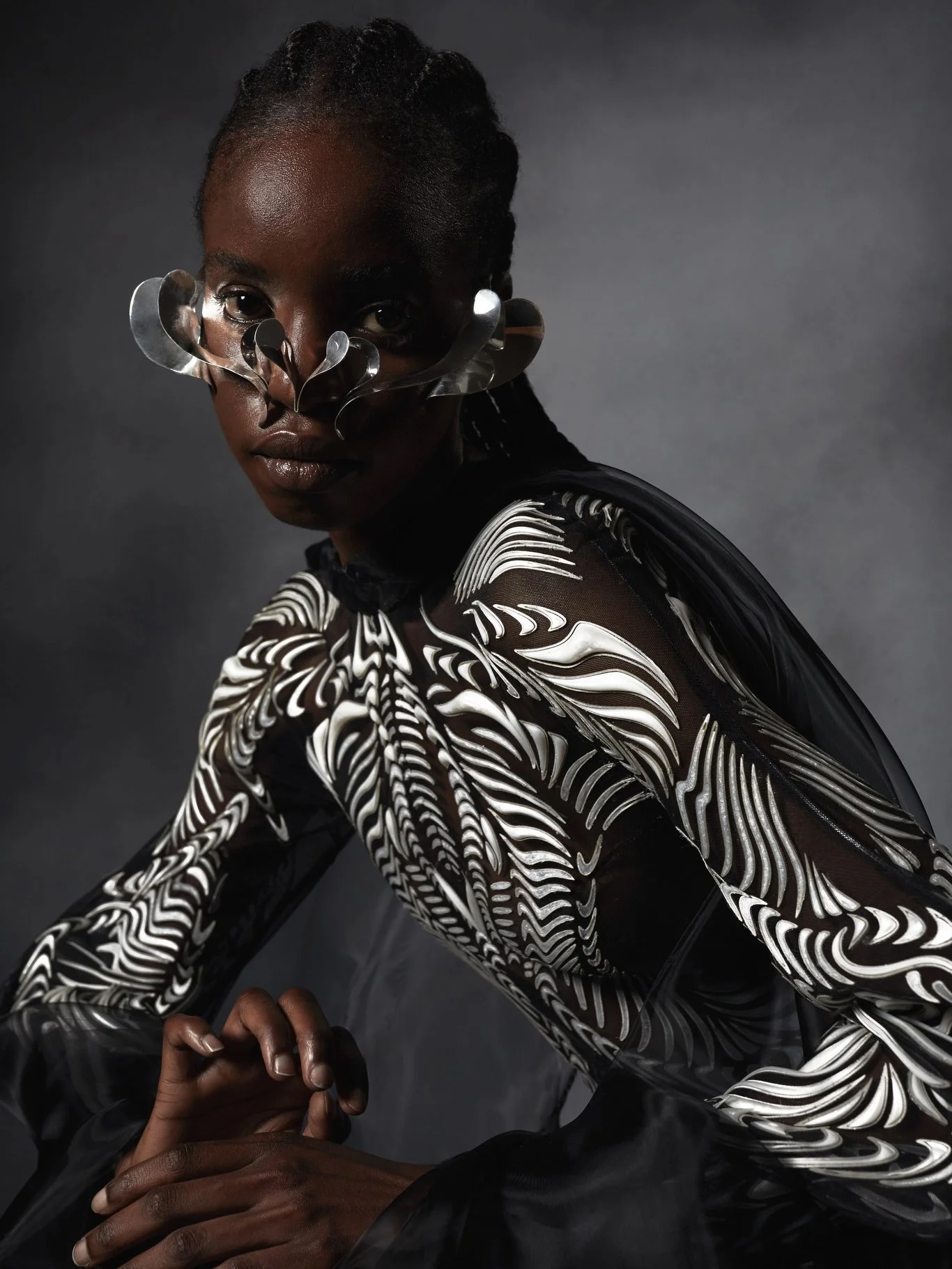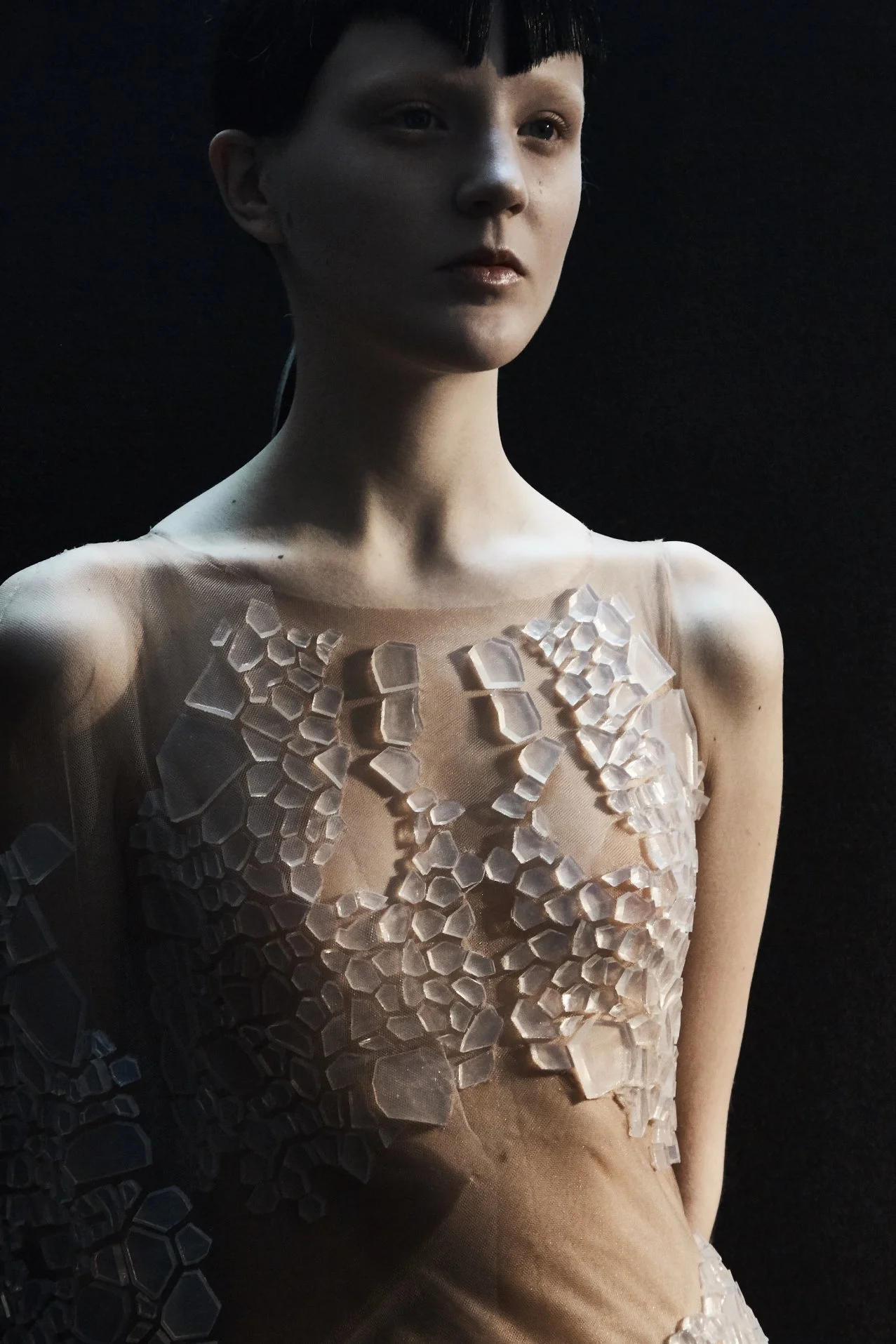 Image 1 of 16
Image 1 of 16

 Image 2 of 16
Image 2 of 16

 Image 3 of 16
Image 3 of 16

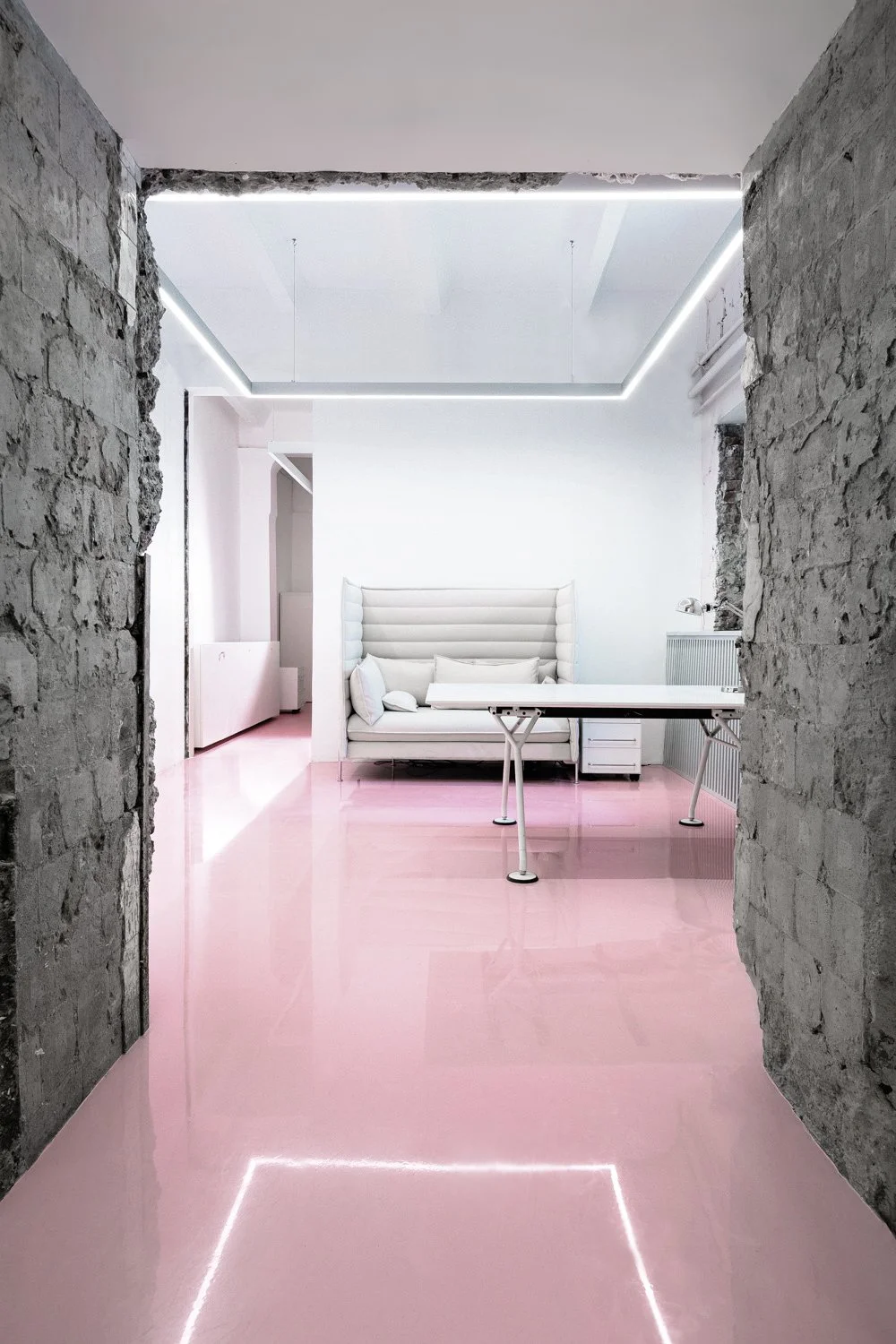 Image 4 of 16
Image 4 of 16

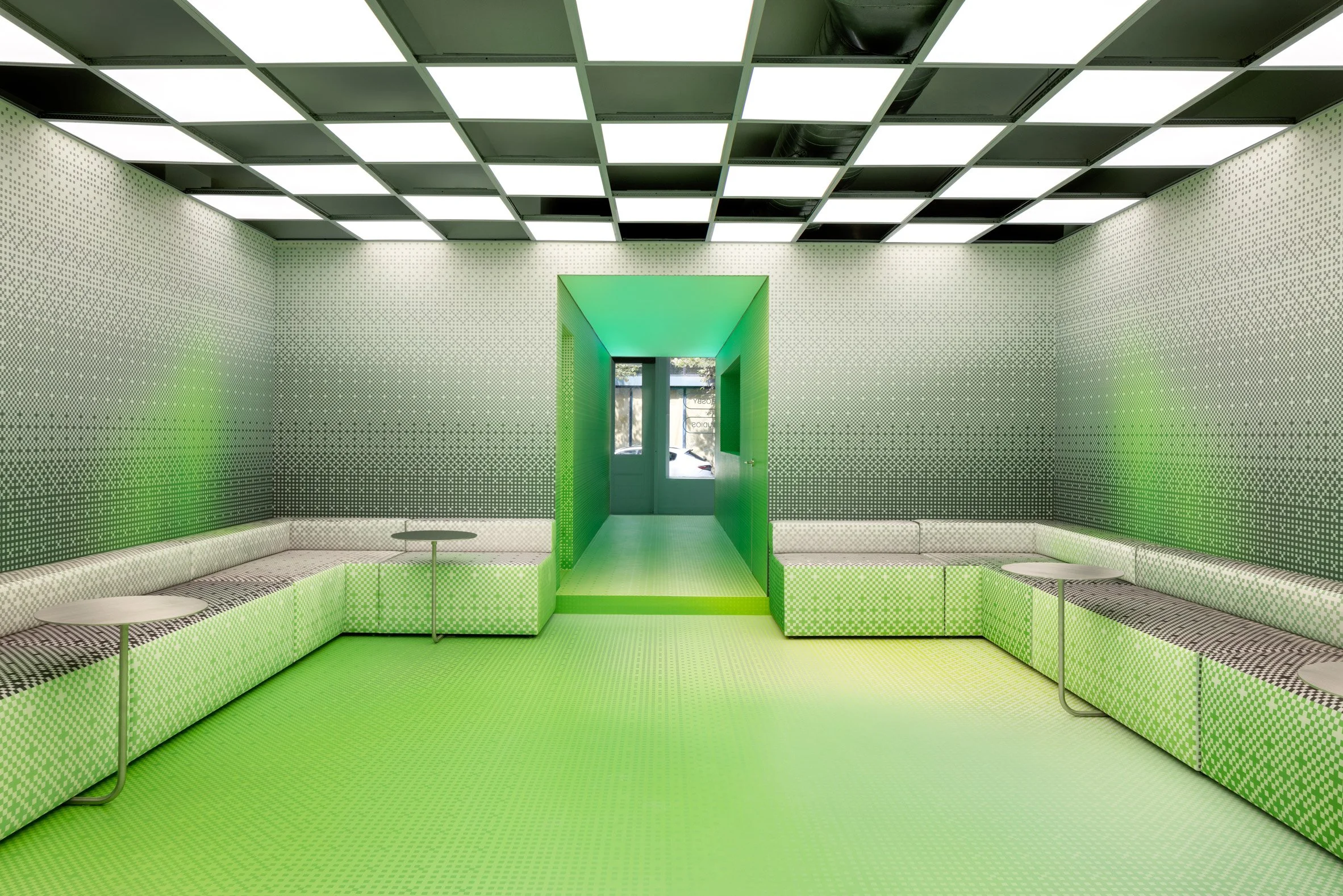 Image 5 of 16
Image 5 of 16

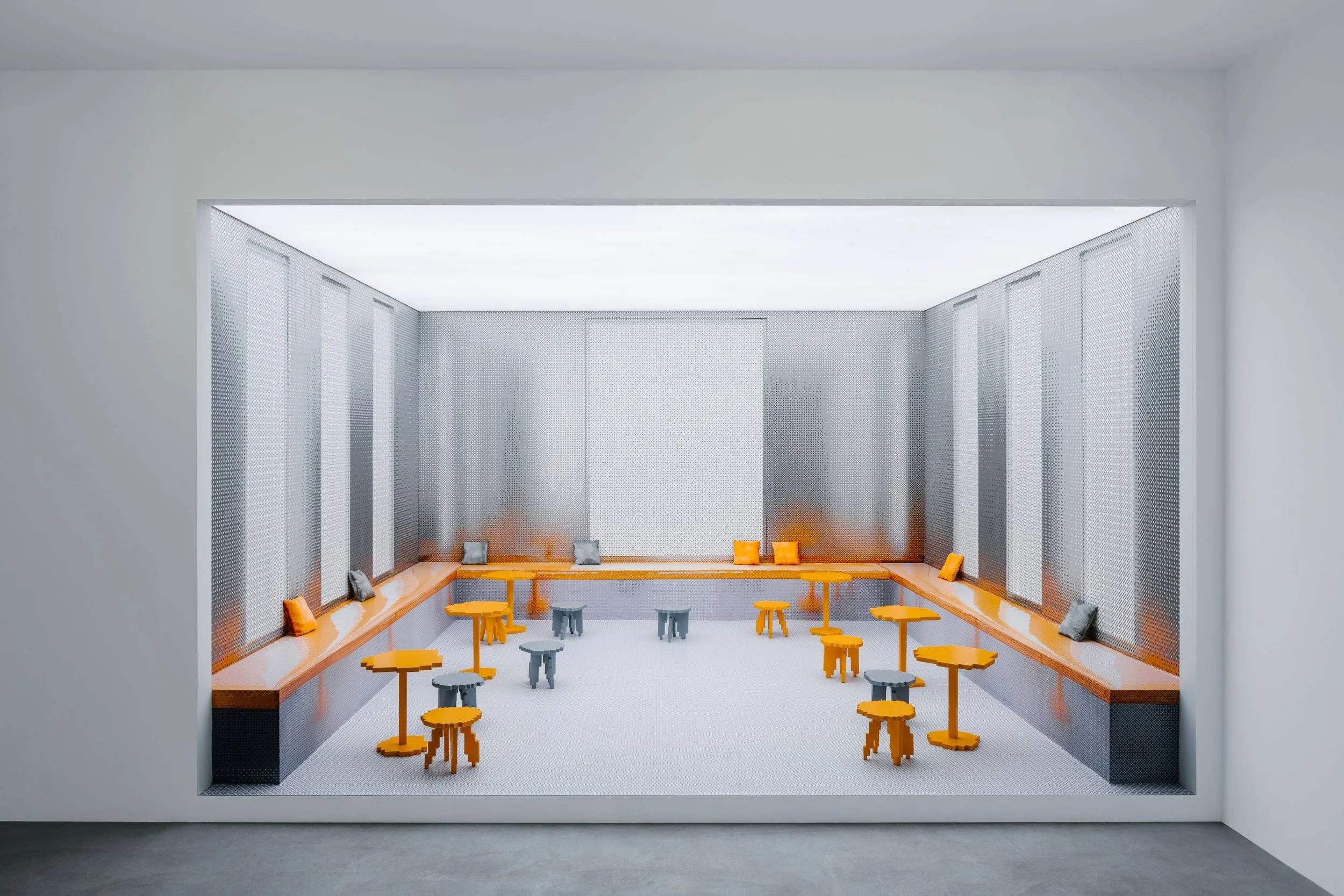 Image 6 of 16
Image 6 of 16

 Image 7 of 16
Image 7 of 16

 Image 8 of 16
Image 8 of 16

 Image 9 of 16
Image 9 of 16

 Image 10 of 16
Image 10 of 16

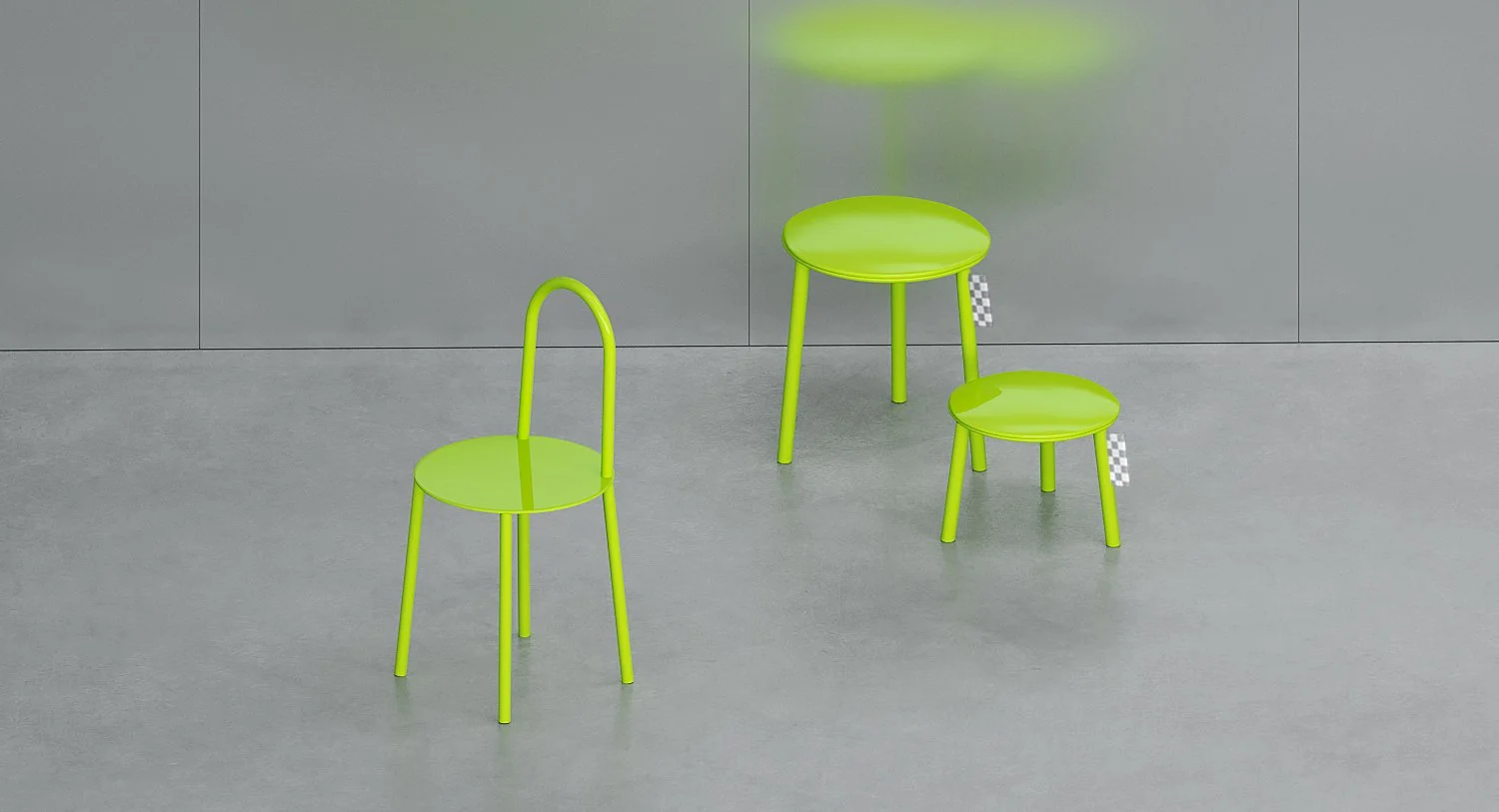 Image 11 of 16
Image 11 of 16

 Image 12 of 16
Image 12 of 16

 Image 13 of 16
Image 13 of 16

 Image 14 of 16
Image 14 of 16

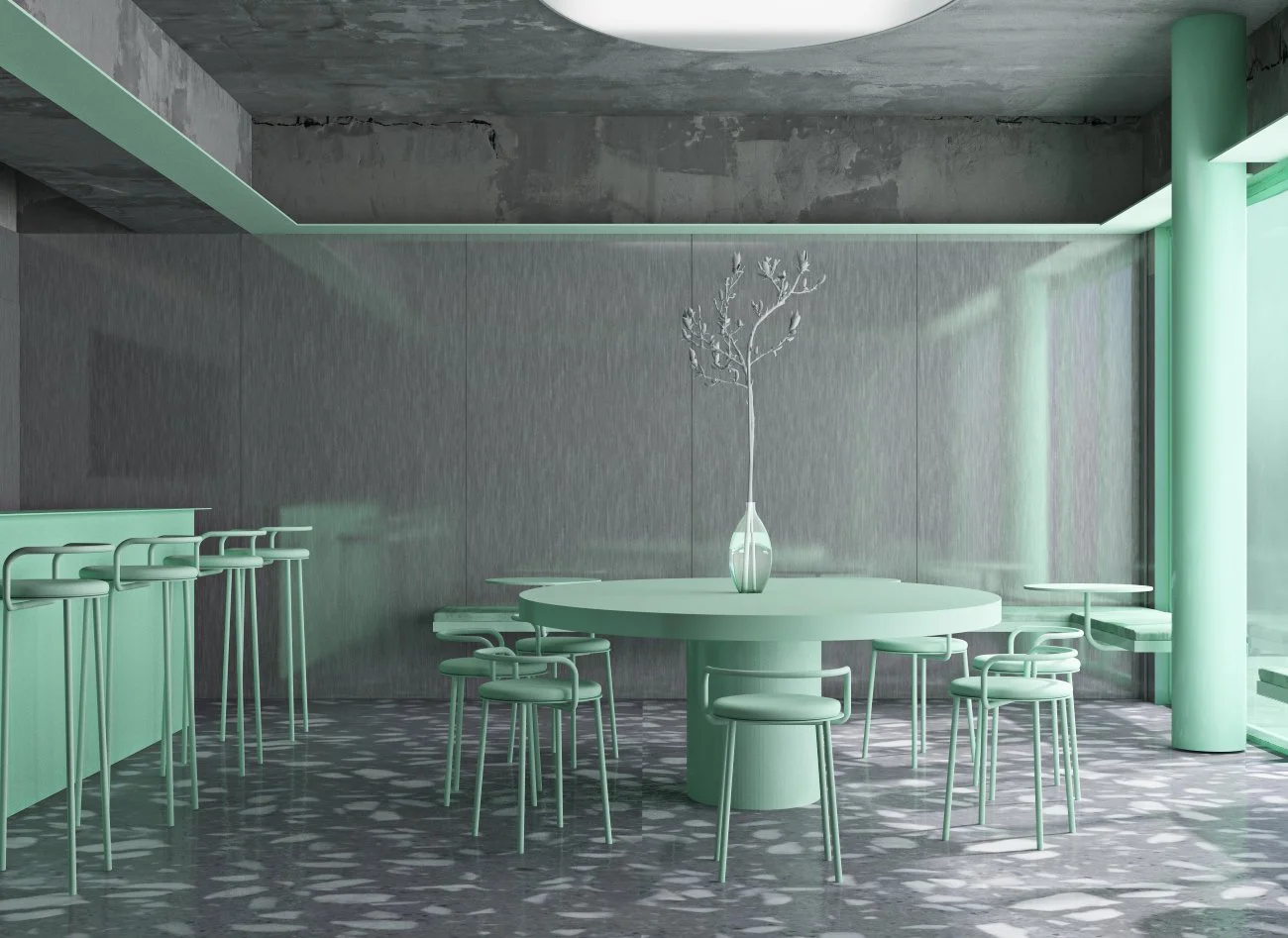 Image 15 of 16
Image 15 of 16

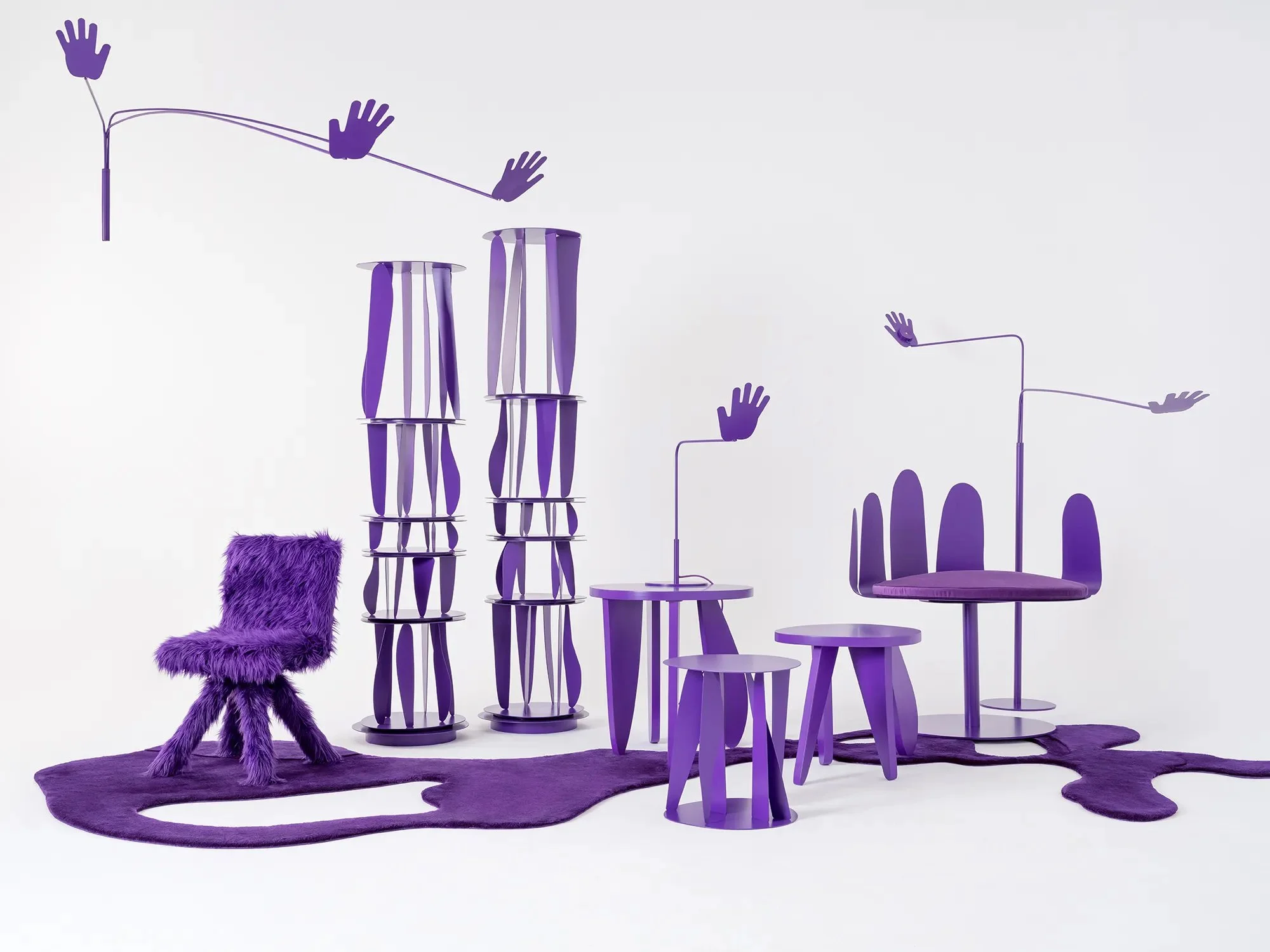 Image 16 of 16
Image 16 of 16

















Crosby Studios brings bold circular design to the table
Crosby Studios is a multidisciplinary design practice founded by Harry Nuriev in 2014. Based in New York City and Paris, the studio was established with the mission to create innovative and avant-garde design solutions across various disciplines. Crosby Studios' current approach focuses on integrating sustainability and circular economy principles into their projects, while maintaining a distinctive aesthetic characterized by bold colors and unexpected material choices. Core values include innovation, sustainability, and pushing design boundaries, with a purpose to redefine the relationship between design, materials, and the environment.
Location
Headquarters: New York City, USA and Paris, France.
Primary manufacturing/operations locations: Various global locations for projects and collaborations.
The Circular Vision
Core circular economy principles: Designing out waste, using recycled and upcycled materials, and creating products that promote environmental awareness and sustainable practices.
Key innovations: Development of furniture pieces using upcycled materials, such as the transparent vinyl sofa filled with deadstock clothing from Balenciaga. Transformation of discarded items into functional design objects.
Prioritization of local sourcing and closed-loop supply chains: Emphasis on using recycled and repurposed materials, though specific information on local sourcing is not provided.
Pioneering Solutions
Flagship projects: Crosby Studios' portfolio includes innovative projects such as the Balenciaga sofa (made from deadstock clothing), upcycled furniture pieces, and various interior design projects that showcase the potential of transforming waste materials into high-end design objects.
The Regenerative Future
R&D focus areas: Advancing techniques for transforming waste materials, exploring new applications for recycled materials, and developing solutions that further reduce waste and energy consumption in design and production processes.
Ambitious goals: To lead the design industry in sustainable practices, create zero-waste products, and inspire a shift towards a regenerative approach to design and material usage.
Fact Sheet
Commercial Availability: Design services and products available through collaborations, exhibitions, and partnerships with brands and institutions.
Circularity Rating: 4/5 (Strong focus on using recycled and upcycled materials, though full lifecycle considerations are not explicitly mentioned).
Cost Rating: High-end pricing for collectible design pieces and services.
Material Passport: Use of recycled and upcycled materials in projects, though formal material passports are not mentioned.
Designed for Disassembly: Information not explicitly provided, but emphasis on transformation suggests potential for adaptability.
Carbon Performance: Focus on using recycled materials, but specific carbon performance metrics are not provided.
Key Takeaway
Crosby Studios transforms the design industry through innovative use of recycled and upcycled materials, setting a benchmark for environmental responsibility and material innovation in contemporary design.
Explore Further
Crosby Studios website: https://crosbystudios.com
Crosby Studios is a multidisciplinary design practice founded by Harry Nuriev in 2014. Based in New York City and Paris, the studio was established with the mission to create innovative and avant-garde design solutions across various disciplines. Crosby Studios' current approach focuses on integrating sustainability and circular economy principles into their projects, while maintaining a distinctive aesthetic characterized by bold colors and unexpected material choices. Core values include innovation, sustainability, and pushing design boundaries, with a purpose to redefine the relationship between design, materials, and the environment.
Location
Headquarters: New York City, USA and Paris, France.
Primary manufacturing/operations locations: Various global locations for projects and collaborations.
The Circular Vision
Core circular economy principles: Designing out waste, using recycled and upcycled materials, and creating products that promote environmental awareness and sustainable practices.
Key innovations: Development of furniture pieces using upcycled materials, such as the transparent vinyl sofa filled with deadstock clothing from Balenciaga. Transformation of discarded items into functional design objects.
Prioritization of local sourcing and closed-loop supply chains: Emphasis on using recycled and repurposed materials, though specific information on local sourcing is not provided.
Pioneering Solutions
Flagship projects: Crosby Studios' portfolio includes innovative projects such as the Balenciaga sofa (made from deadstock clothing), upcycled furniture pieces, and various interior design projects that showcase the potential of transforming waste materials into high-end design objects.
The Regenerative Future
R&D focus areas: Advancing techniques for transforming waste materials, exploring new applications for recycled materials, and developing solutions that further reduce waste and energy consumption in design and production processes.
Ambitious goals: To lead the design industry in sustainable practices, create zero-waste products, and inspire a shift towards a regenerative approach to design and material usage.
Fact Sheet
Commercial Availability: Design services and products available through collaborations, exhibitions, and partnerships with brands and institutions.
Circularity Rating: 4/5 (Strong focus on using recycled and upcycled materials, though full lifecycle considerations are not explicitly mentioned).
Cost Rating: High-end pricing for collectible design pieces and services.
Material Passport: Use of recycled and upcycled materials in projects, though formal material passports are not mentioned.
Designed for Disassembly: Information not explicitly provided, but emphasis on transformation suggests potential for adaptability.
Carbon Performance: Focus on using recycled materials, but specific carbon performance metrics are not provided.
Key Takeaway
Crosby Studios transforms the design industry through innovative use of recycled and upcycled materials, setting a benchmark for environmental responsibility and material innovation in contemporary design.
Explore Further
Crosby Studios website: https://crosbystudios.com

















